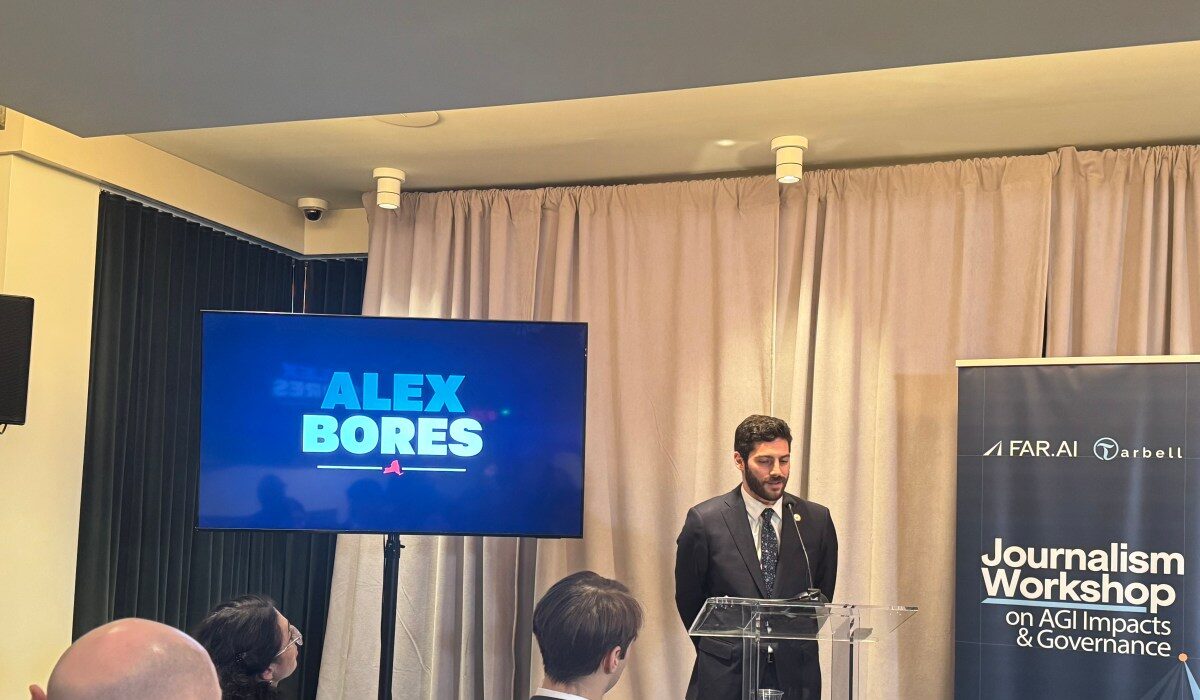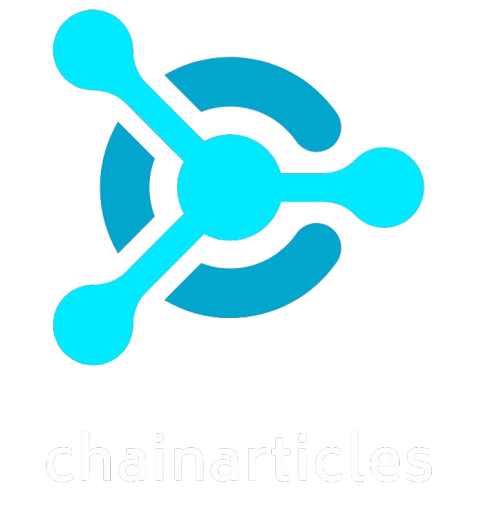A pro-AI super PAC backed by Andreessen Horowitz and OpenAI President Greg Brockman has chosen New York Assembly member Alex Bores — and his congressional bid — as its first target.
The PAC, dubbed Leading the Future, formed in August with a more than $100 million commitment to support policymakers with a light-touch — or a no-touch — approach to AI regulation. And that means going after policymakers who want to regulate AI. The super PAC has backing from a number of other prominent leaders in tech, including Palantir co-founder and 8VC managing partner Joe Lonsdale as well as AI search engine Perplexity.
“I appreciate how straightforward they’re being about it,” Bores told a room of journalists Monday evening at a Journalism Workshop on AGI impacts and governance in Washington, D.C. “When they say, ‘Hey, we’re going to spend millions against Alex because he might regulate Big Tech and put basic guardrails on AI,’ I just basically forward that to my constituents.”
Bores, who’s running to represent the state’s 12th Congressional District, said AI anxieties are on the rise among his constituents, who worry about everything from data centers pushing up utility bills and worsening climate change to chatbots impacting kids’ mental health and automation transforming the job market.
Bores is the chief sponsor of New York’s bipartisan RAISE Act, which requires large AI labs to have a safety plan in place to prevent critical harms, follow their own safety plan, and disclose critical safety incidents, like bad actors stealing an AI model. The bill also prohibits AI firms from releasing models with unreasonable risks of critical harm and imposes civil penalties of up to $30 million if companies fail to live up to these standards. The legislation is currently awaiting Gov. Kathy Hochul’s signature.
Bores said while drafting and redrafting the bill, he consulted with the large AI firms like OpenAI and Anthropic. Those negotiations led to the removal of provisions like third-party safety audits, which he says the industry refused to accept. Nevertheless, the RAISE Act, and Bores himself, appears to have incurred the ire of Silicon Valley.
Zac Moffatt and Josh Vlasto, heads of Leading the Future, told Politico that they would work on a multibillion-dollar effort to sink Bores’ campaign.
Techcrunch event
San Francisco
|
October 13-15, 2026
In a statement sent to TechCrunch, they accused Bores of advancing “ideological and politically motivated legislation that would handcuff not only New York’s, but the entire country’s ability to lead on AI jobs and innovation.” The pair said “bills like the RAISE Act threaten American competitiveness, limit economic growth, leave users exposed to foreign influence and manipulation, and undermine our national security.”
“The RAISE Act is a clear example of the patchwork, uninformed, and bureaucratic state laws that would slow American progress and open the door for China to win the global race for AI leadership,” Moffatt and Vlasto said in the emailed statement. “America needs one clear and consistent national regulatory framework for AI that strengthens our economy, creates jobs for American workers, supports vibrant communities, and protects users.”
Many in Silicon Valley have pushed to prohibit states from passing regulation that relates to AI. Earlier this year, a provision blocking state AI laws was slipped into the federal budget bill and was later removed. Now, lawmakers like Sen. Ted Cruz are seeking to resurrect it through other legislative avenues.
Bores said he is concerned such a movement could continue to gain legs at a time when the federal government has passed no meaningful AI regulation. Where federal government moves slow, states are like startups — they can function as policy laboratories and move fast to test what works.
“The question should be, has Congress solved the problem?” Bores said. “If Congress solves the problem, then it can tell the states to get out of the way, but if they’re not going to pass a bill that’s actually addressing any of the problems…and then [saying that states can’t do anything] that just doesn’t make sense to me.”
Bores also noted he has been in contact with policymakers in other states to work on standardizing legislation, which could combat Silicon Valley’s “patchwork” objection. He also believes that lawmakers should ensure there are no redundancies with the EU AI Act.
Bores emphasized that AI regulation isn’t meant to limit innovation, and that he has rejected bills that he thinks would have unintended consequences for the industry.
“Having basic rules of the road, literal or metaphorical, is actually a very pro-innovation stance if done well,” Bores said. “I fundamentally believe that the AI that wins is going to be the AI that is trustworthy. And the pushback from industry to say that government has no role in establishing that trust is one that I think you’re seeing people reject at every level.”




